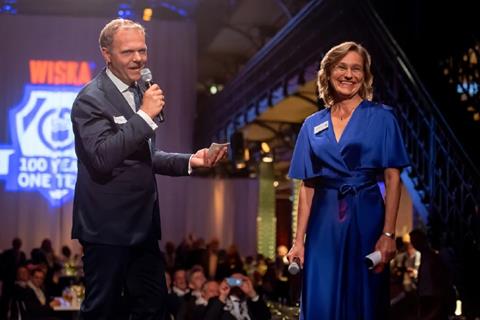German suppliers of marine equipment and systems recorded a 2.5% drop in turnover last year, but new orders surged by more than 14%.
Booming newbuild construction activity worldwide fuelled the 2021 uplift in contract volume, and a further development in business intake is being experienced this year. However, supply chain problems, notably as regards obtaining components, are slowing down production and deliveries and clouding the outlook for 2023 and beyond. Further uncertainty arises from the war in the Ukraine.
Last year’s fall in sales, to EUR10.2bn ($10.6bn) from the EUR10.5bn ($11bn) for 2020, was squarely attributed by industry association VDMA to the impact of the Covid-19 pandemic. In contrast, the order inflow saw a complete turnaround over the same period, whereby the 10.9% decline for 2020 became a 14.3% increase in 2021.
Notwithstanding the past year’s moderate fall-off in overall earnings, the sector reaffirmed its pre-eminent position as a supplier to shipyards, shipowners, other equipment makers and traders worldwide, by way of an export factor of nearly 80%. The Asian region as a whole accounted for 34% of foreign sales, while the rest of Europe was the destination for 33% of the export tally.
While the services and installation business segment has been hard hit by Covid-19 restrictions, amounting to just 11% of turnover in 2021, the country’s sustained industrial manufacturing mettle is clear from the fact that the mechanical engineering domain contributed 81% of total sales. Shipyards remained the largest buyer group, wherein naval shipbuilders represent a growing sales market, followed by shipowners and ship management companies. In addition, VDMA points to the rising importance of ‘package’ and system suppliers and integrators as buyers of German products.
Digitalisation and automation are viewed by many companies as a route to enhanced international competitiveness, along with the development of resilient supply chains.
The number of employees throughout the sector remained constant at around 63,000, in about 400 firms, although VDMA reports that the shortage of skilled labour is coming to a head in mechanical engineering in the marine field.
“In order to adequately replace the many skilled workers who will retire in the next few years, young recruits must receive attractive training in maritime mechanical engineering,” asserted Tanja Hoppmann, VDMA board member and managing partner of WISKA Hoppmann. “We are aiming for a training quota of 10%, but despite our regional prominence we simply have too few applicants for this at the moment,” she added.






